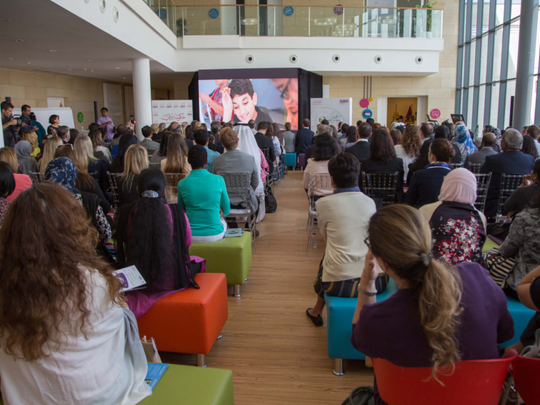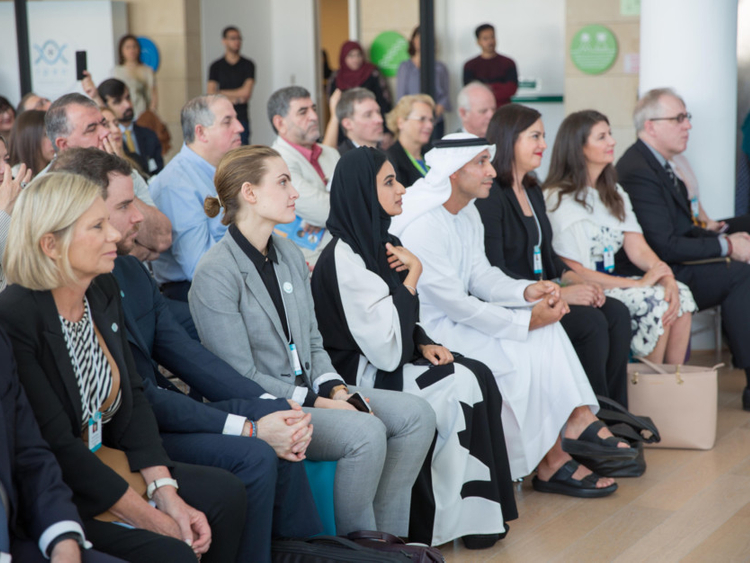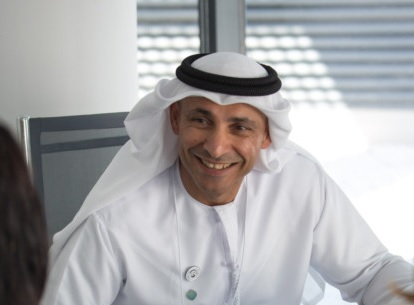
Dubai: In a groundbreaking survey on student well-being, Dubai’s Knowledge and Human Development Authority (KHDA) has found that 84 per cent of the pupils are happy at school.
First-ever citywide effort to measure student well-being and happiness, the Dubai Student Well-being Census covered almost 65,000 students from Grades 6 to 9 across 168 schools in Dubai.
Part of a five-year plan that attempts to understand what makes children happy, while looking at ways to nurture their well-being, the first edition of the census has revealed some startling results suggesting that eight out of 10 students in Dubai’s private schools have high levels of happiness.
The participating students, belonging to 162 nationalities and studying a wide range of curricula, were asked between 50 and 60 questions each in an online survey that measured their social and emotional well-being, physical health and lifestyle, relationships and learning as well as after-school activities.
The census has found that the students who ate and slept well and had a more balanced relationship in and out of school tend to be happier than the others.
According to the findings of the census that were revealed at an event at Al Jalila Cultural Centre for Children, 87 per cent of students enrolled in Indian curriculum school were happy, while 85 per cent of those enrolled in schools rated ‘Good’ or higher were happy.
Focusing on wider aspects of lifestyle and well-being, the census found that the happiest among the students are those who usually get a good night’s sleep (91 per cent), have healthy diet that includes a good dose of fruits and vegetables (87 per cent), as well as those who have close friendships (89 per cent).
“The ecosystem of education should be one which prepares children for the tests of life, not a life of tests. The census is designed to be a tool that encourages schools and families to have a conversation with their children and look at ways to develop positive relationships and enhance well-being,” said Dr Abdullah Al Karam, director-general of KHDA.
The census also revealed that relationships are a key driver of student well-being and happiness. However, students in higher grades reported lower levels of happiness and felt less connected to adults at school and at home.
“We have some great news from the census, however, not everything is perfect and the result will prepare all the stakeholders, including teachers, parents, regulators and others, to look at ways of improving the well-being of the students. Eighty-four per cent of children at school say they’re happy most of the time and this is really good news and we can only improve from here on,” said Al Karam.
He added that the census results are a milestone for the education sector because they now have a baseline that suggests how the students are doing when it comes to their well-being.
The census data provides schools with an in-depth understanding of how students feel about their school life, home life, themselves and their relationships with others. The data will also provide an insight into student attitudes towards their experiences in and out of school.
“Every school will receive an insight into their student well-being scores, with each report spread across an average of 125 pages and KHDA will facilitate special workshops with international experts for all schools in Dubai. By bringing schools together to understand the importance of well-being, we are looking at a better future for our schools,” he added.
The workshops will be held from February 19 to 21.
Conducted in partnership with the Government of South Australia, the enormous survey was finished in a record time of nine months, starting in March 2017 and ending in mid-December 2017.
“Dubai now has one of the most comprehensive data sets on children’s happiness and well-being in the world. This will be of enormous benefit in helping schools, communities and governments develop plans to improve the happiness of the children of Dubai,” said David Engelhardt, director, Department for Education and Child Development at the Government of South Australia.
The Dubai Student Well-being Census is aimed at helping schools to improve student well-being and support Dubai’s vision to be among the five happiest cities in the world by 2021.













